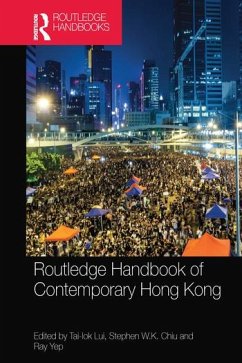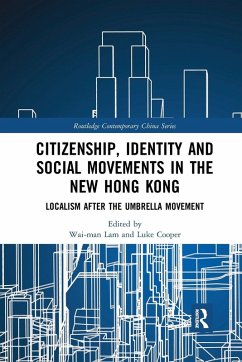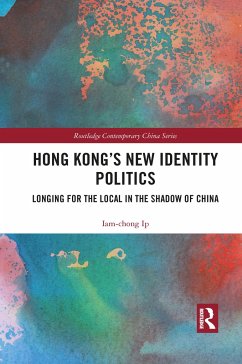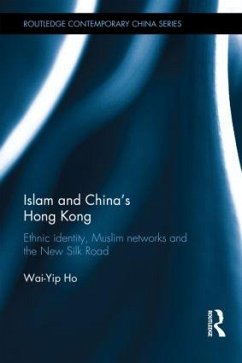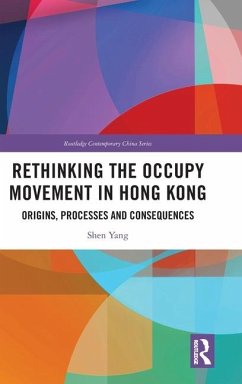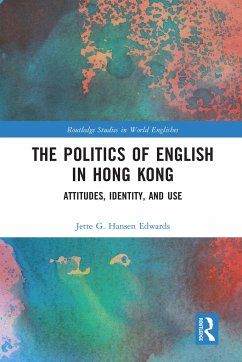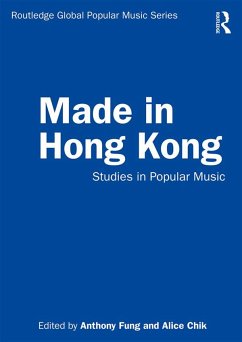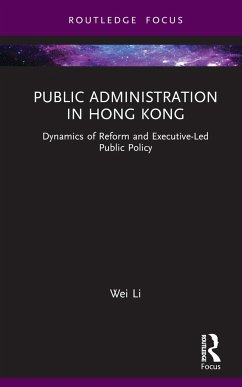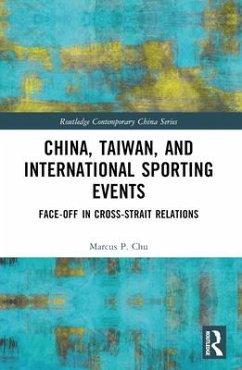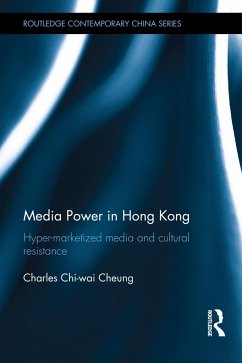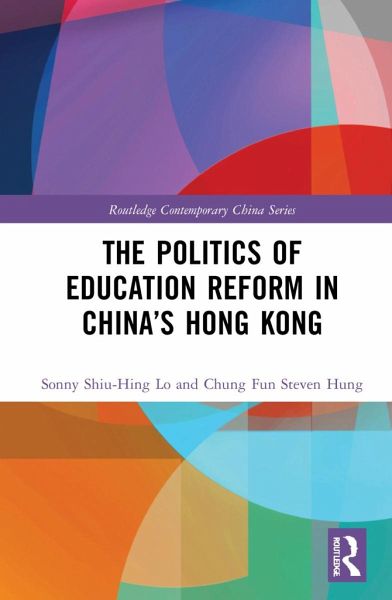
The Politics of Education Reform in China's Hong Kong
Versandkostenfrei!
Versandfertig in 6-10 Tagen
154,99 €
inkl. MwSt.
Weitere Ausgaben:

PAYBACK Punkte
77 °P sammeln!
Education reform has become a highly political issue in the Hong Kong Special Administrative Region (HKSAR) since the transfer of sovereignty to the People's Republic of China (PRC).Lo and Hung focus on the political struggles among stakeholders, including the government of Hong Kong, the Catholic Church, parents, students, teachers, the central authorities of Beijing, and even the bureaucratic politics between Beijing, the Hong Kong government and the Examination Authority. They examine the key elements of education reform in the HKSAR, including language and curriculum reform, national secur...
Education reform has become a highly political issue in the Hong Kong Special Administrative Region (HKSAR) since the transfer of sovereignty to the People's Republic of China (PRC).
Lo and Hung focus on the political struggles among stakeholders, including the government of Hong Kong, the Catholic Church, parents, students, teachers, the central authorities of Beijing, and even the bureaucratic politics between Beijing, the Hong Kong government and the Examination Authority. They examine the key elements of education reform in the HKSAR, including language and curriculum reform, national security education, civic and patriotic education, the rise of the pro-Beijing education elites and interest groups, and the revamp of examination questions and examination authority. The entire education reform in the HKSAR has pushed the Hong Kong education system toward a process of mainlandization, making Hong Kong's education system more similar to the mainland system with emphasis on political "correctness" in the understanding of Chinese national security, history and culture.
Highlighting the political struggles among the various stakeholders, this book is essential for scholars of Hong Kong and China, especially those with an interest in the relationship between education and politics.
Lo and Hung focus on the political struggles among stakeholders, including the government of Hong Kong, the Catholic Church, parents, students, teachers, the central authorities of Beijing, and even the bureaucratic politics between Beijing, the Hong Kong government and the Examination Authority. They examine the key elements of education reform in the HKSAR, including language and curriculum reform, national security education, civic and patriotic education, the rise of the pro-Beijing education elites and interest groups, and the revamp of examination questions and examination authority. The entire education reform in the HKSAR has pushed the Hong Kong education system toward a process of mainlandization, making Hong Kong's education system more similar to the mainland system with emphasis on political "correctness" in the understanding of Chinese national security, history and culture.
Highlighting the political struggles among the various stakeholders, this book is essential for scholars of Hong Kong and China, especially those with an interest in the relationship between education and politics.




